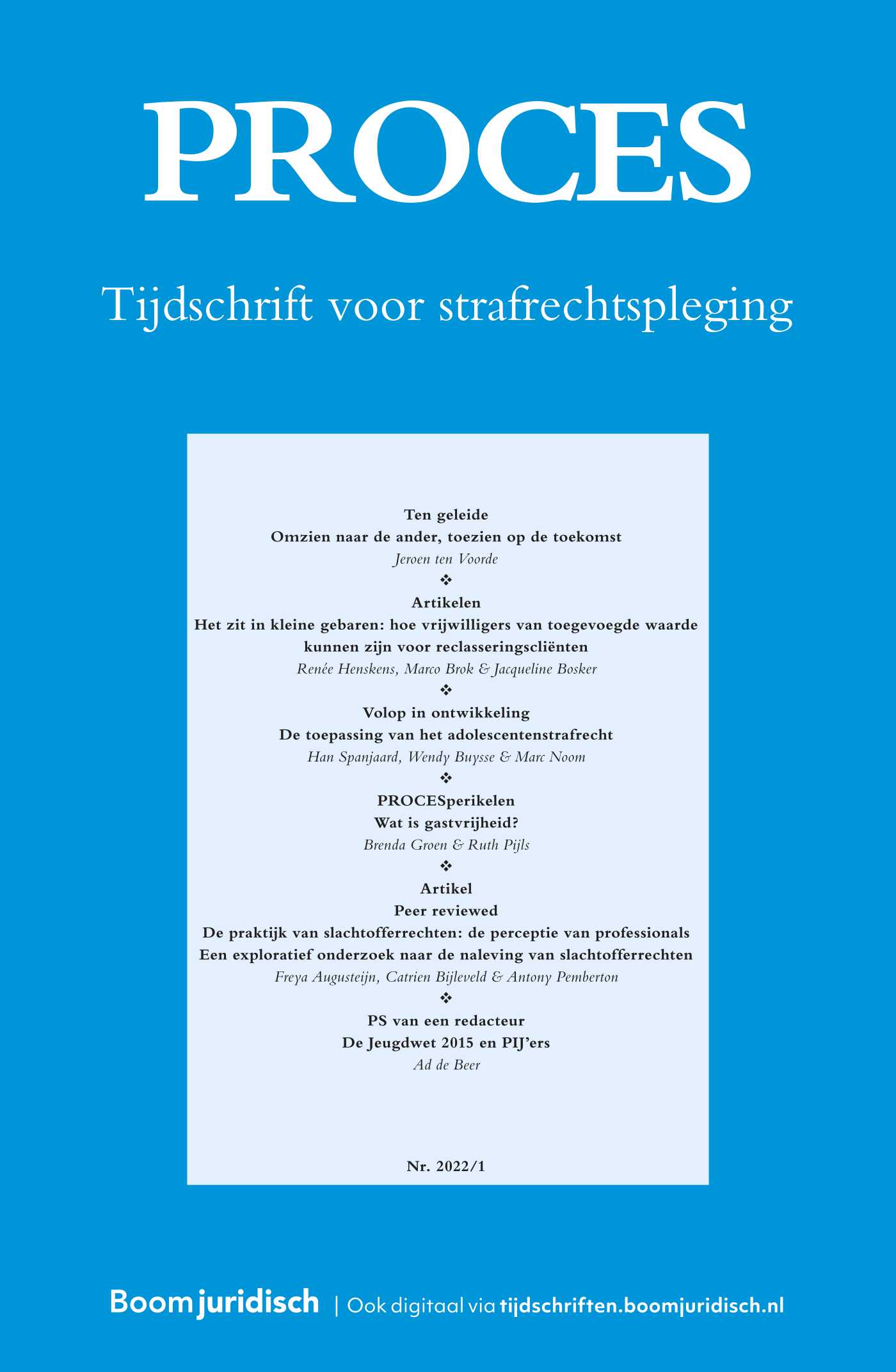|
Both the Court of Justice and the regional Court of The Hague ruled the retention of telecommunications data directive and the Dutch Wet bewaarplicht telecommunicatiegegevens in violation of the right to respect for privacy. The police and the Dutch Prosecutors Office have attempted to clarify the importance of the retention for criminal investigation. However, without an efficiency and effectiveness assessment of the method to request and analyse telecommunication data, it is not possible to substantiate the significance of data retention. To ‘save’ the retention of telecommunication data in its current form, but also to assess the importance of the existing and new investigative methods, a thorough analysis is necessary. |


PROCES
Meer op het gebied van Criminologie en veiligheid
Over dit tijdschriftMeld u zich hier aan voor de attendering op dit tijdschrift zodat u direct een mail ontvangt als er een nieuw digitaal nummer is verschenen en u de artikelen online kunt lezen.
| Redactioneel |
De officier van justitie en de behandeling van de vordering van de benadeelde partij ter zitting |
| Auteurs | Mr. dr. Ard Schoep |
| Auteursinformatie |
| Artikel |
Het doel heiligt het middel? Over de noodzaak van uniforme criteria voor evaluatie van de effectiviteit en efficiëntie van de opsporing |
| Trefwoorden | Effectiviteit, Efficiëntie, Opsporingsmethoden, Wet bewaarplicht |
| Auteurs | Dave van Toor LLM BSc |
| SamenvattingAuteursinformatie |
| Artikel |
Nederland een van de meest punitieve landen in Noord- en West-Europa? Een mythe ontzenuwd |
| Trefwoorden | Strafklimaat, Punitiviteit, Gevangenisstraffen, Internationale vergelijking |
| Auteurs | Dr. Ben van Velthoven |
| SamenvattingAuteursinformatie |
|
It is frequently claimed that the punishment regime in the Netherlands lately has become one of the most severe in North and West Europe. This claim is critically addressed using data over the period 1990-2011 from the European Sourcebooks of Crime and Criminal Justice. Prison stock data from recent SPACE I Annual Penal Statistics are also taken into account. These data hardly do warrant a reliable international comparison of punitivity levels in Europe. At any rate, there is no evidence that the punishment regime in the Netherlands is among the most severe in North and West Europe, on the contrary. |
| Praktijk |
Afstomping, socialisatie en gestolde betrokkenheid |
| Auteurs | Dr. Lianne Kleijer-Kool |
| Auteursinformatie |
| Artikel |
Het einde van de PIJ |
| Trefwoorden | PIJ-maatregel, beëindiging van maatregel, Jeugddelinquenten, Jeugdwet 2015 |
| Auteurs | Mr. Ad de Beer |
| SamenvattingAuteursinformatie |
|
In this article, juvenile prosecutor Ad de Beer takes a critical look at the regulatory schemes surrounding the penal measure of placement in an institution for juvenile offenders (the ‘PIJ’ measure). Since the entry into force of the new Juvenile Law 2015 on January 1st 2015, three ways currently exist to discontinue the PIJ measure for an individual offender. While arguing that this legal reality is very confusing for practitioners, De Beer tries to untangle this complicated set of schemes. |
| Column |
Advocaat aan de zijlijn: een ongebruikelijke positie |
| Auteurs | Mr. Coosje Peterse |
| Auteursinformatie |
